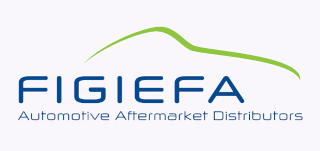Independent Service Providers call for a swift adoption of sector-specific legislation on access to in-vehicle data - Response to ACEA call for more delay
Independent Service Providers (ISPs) call for swift adoption sector-specific legislation on access to in-vehicle data, functions & resources, refuting ACEA’s call upon the European Commission to further delay its legislative proposal.
ACEA stated on 15 February that access to vehicle-generated data is already freely available, that ISPs should wait to assess the impact of the Data Act and that, in any event, sector-specific legislation could not achieve more than is already in the Data Act.
The ISPs hereby respond to these ACEA statements, taking each argument in turn:
1. The Commission has documented through several studies and, most recently, through a Public Consultation and a Targeted Stakeholder consultation, that there are systemic barriers (intrinsic to the vehicle design – and many other structural and behavioural impediments) for fair access of Independent Service Providers to vehicle-generated data, functions & resources.[1] Such systemic gatekeeper and other barriers cannot be remedied through the horizontal Data Act.
2. The European Commission’s Data Act proposal itself emphasises this very point:
“…new rules are needed to ensure that existing vehicle type-approval legislation is fit for the digital age and promotes the development of clean, connected and automated vehicles. Building on the Data Act as a framework for the access and use of data, these rules will address sector-specific challenges, including access to vehicle functions and resources.”[2]
Moreover, the European Parliament’s ITRE Report from February 2023 on the Data Act explicitly mentions the need – on five occasions - for a sectorial regulation to ensure the availability of data which are essential for the repair & servicing of the connected products, in addition to the EP Resolutions in 2018 and 2019 calling for sector-specific legislation on access to vehicle-generated data in the automotive/mobility sector.[3]
3. Without the definition of stand-alone sector-specific legal and technical rules covering data, functions and resources[4], it will not be possible for ISPs to develop their own competing digital services in advance. Without such rules, there will simply be no competing service providers to whom Users could consensually transfer their data, as intended by the Data Act.
The European Commission announced sector-specific legislation as far back as December 2020, for adoption by the College in 2021.[5] Sector-specific legislation on access to health data is already in progress, showing that – as the Commission itself designed – “plug-in” sector-specific rules do not need to wait for the Data Act to be finalised.
The ISPs group stated:
“This statement lays bare ACEA’s strategy: delay, delay, delay. These delays have real-world consequences for the vast majority of the automotive and mobility actors and for consumer and business users alike, while benefitting only one stakeholder group due to their privileged position in the automotive and mobility eco-system.
The Commission forecasts that the vehicle-generated data market could potentially reach €400bn by 2030. Preventing fair competition in Europe, delaying innovation and loading more costs on European consumers and businesses for vehicle-generated data services seems an unlikely recipe for Europe leading in that global market.
It really is high time that the Commission brought forward this proposal. The evidential work has been done over six years, repeatedly demonstrating the fundamental need for sector-specific legislation. The time for action is now! We need certainty to invest and innovate in this sector”.
Laurianne Krid, Director General of the FIA Region 1, representing users, stated:
“Almost every European citizen uses some form of mobility on a daily basis. They should therefore enjoy the benefits of data-driven innovation, choice and especially affordable automotive and mobility services. This can only happen when targeted pro-consumer and pro-competitive rules are in place. European citizens should get these benefits now and not in several years’ time.
The costs of non-action for the European consumer will be high.”
[1] It is understood that there were 500 responses to the Public Consultation and 100 companies responded to the Targeted Stakeholder Consultation.
[2] Proposal for a Regulation of the European Parliament and of the Council on harmonised rules on fair access to and use of data (Data Act), Com(2022) 68 final, page 6.
[3] European Parliament Resolution of 13 March 2018 on a European strategy on Cooperative Intelligent Transport Systems (2017/2067(INI)) and European Parliament Resolution of 15 January 2019 on autonomous driving in European transport (2018/2089(INI)).
[4] These legal and technical rules would cover features such as e.g. real-time access to in-vehicle generated data (including those which are time-critical), the ability of a safe & secure bi-directional communication with the vehicle/ its functions and of a remote interaction with the driver, using the in-vehicle HMI functions (e.g. via the dashboard or voice commands).
[5] Communication from the Commission to the European Parliament, the Council, the European Economic and Social Committee and the Committee of the Regions on a Sustainable and Smart Mobility Strategy – putting European transport on track for the future, COM (2020) 789 final, Annex, page 3.

